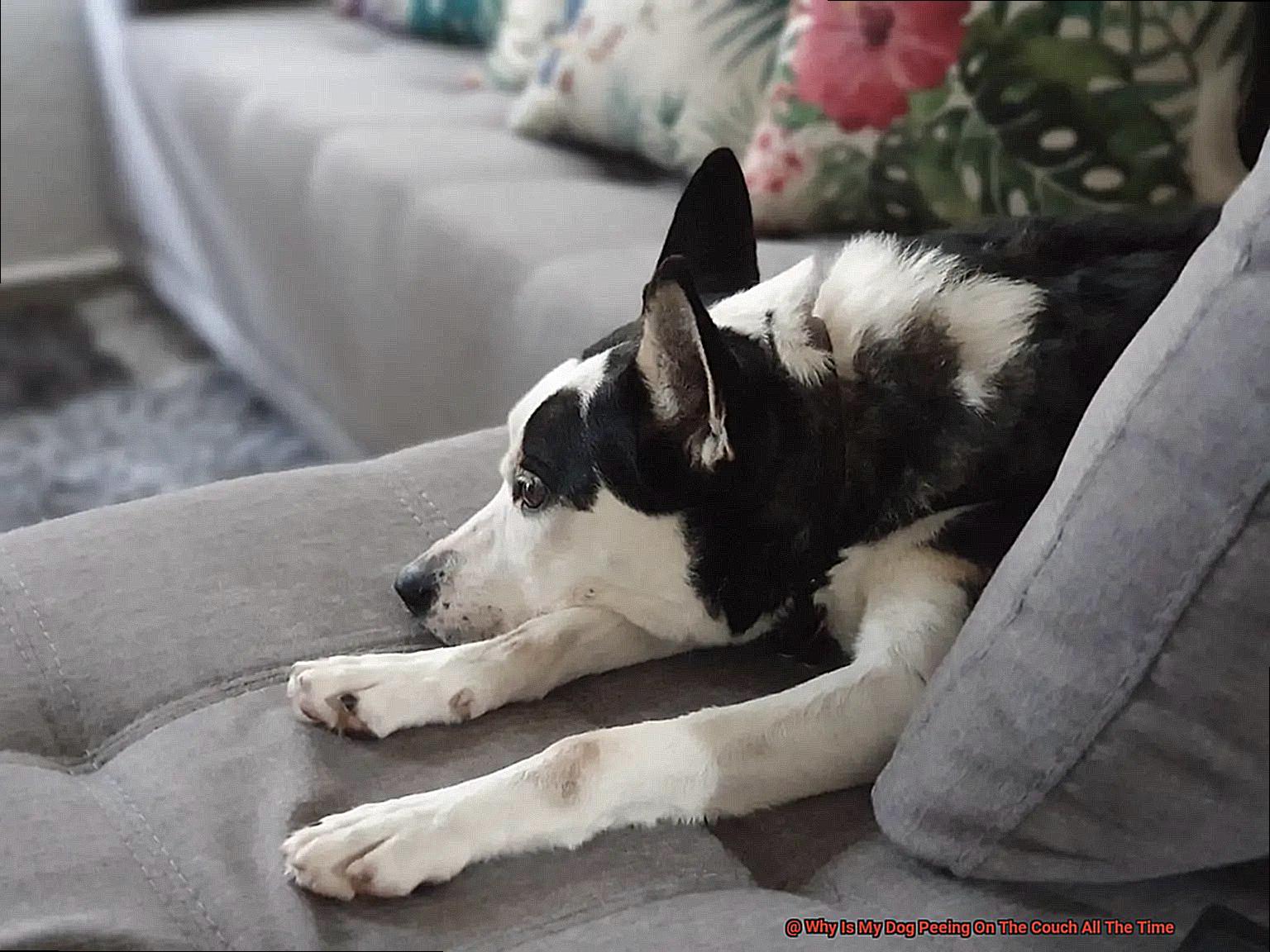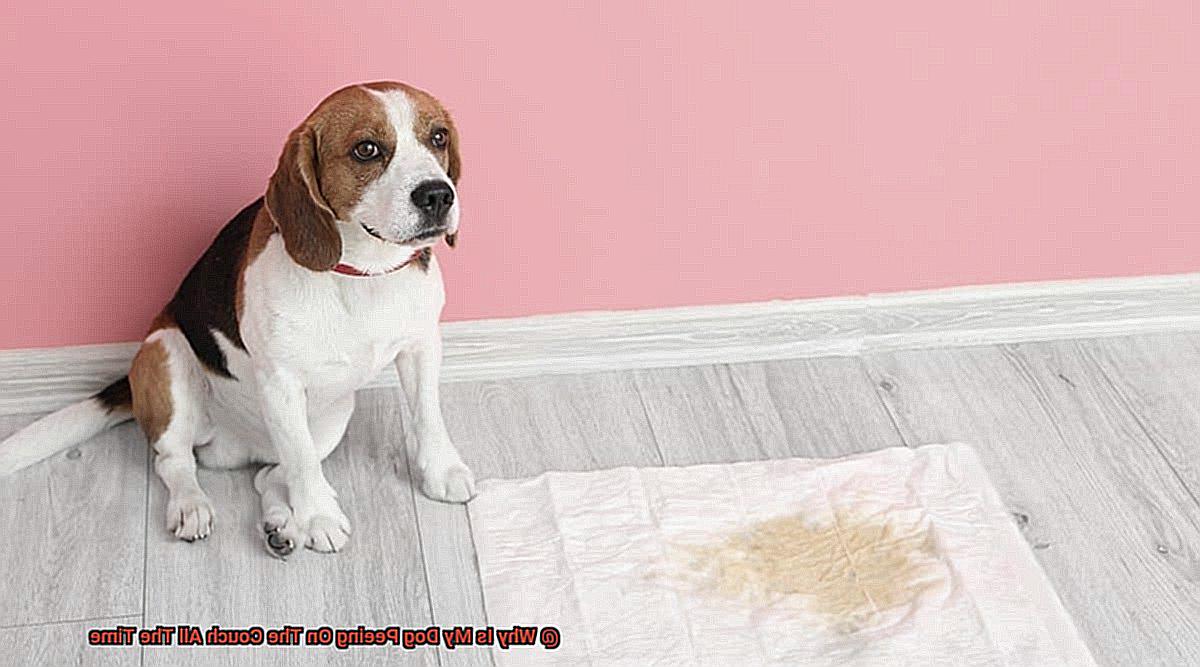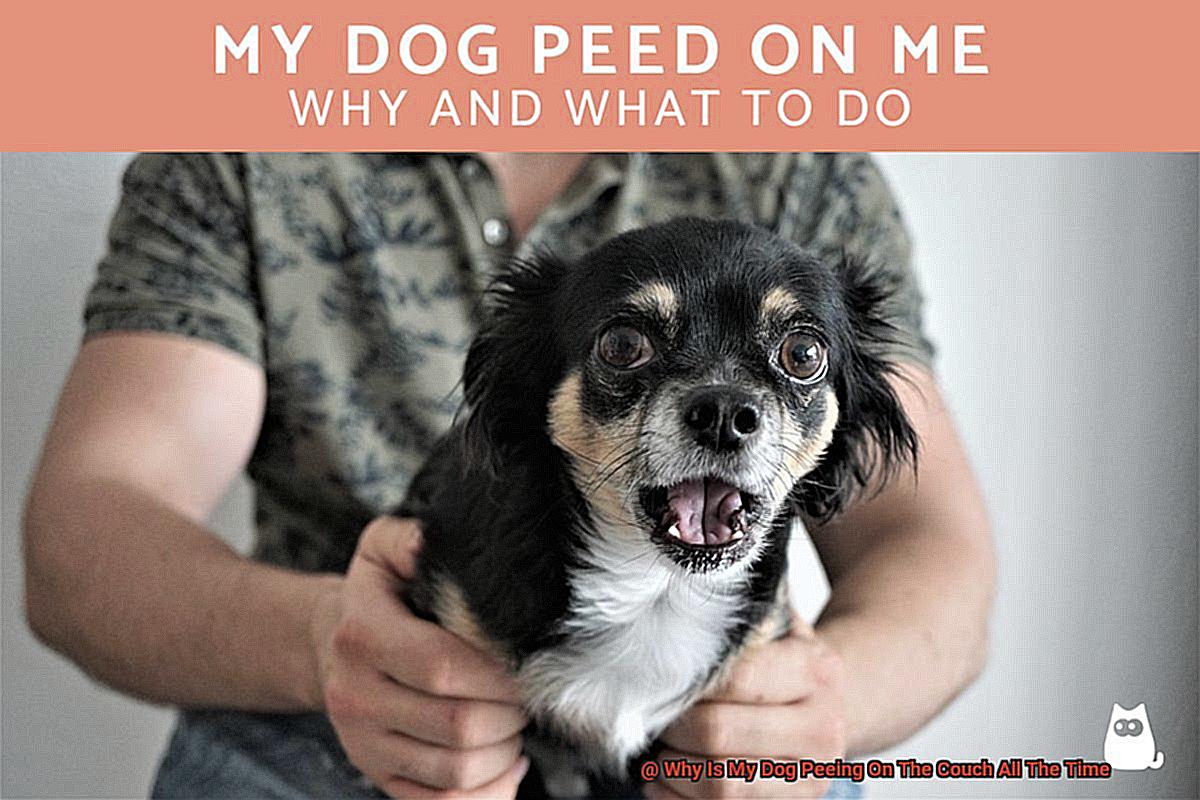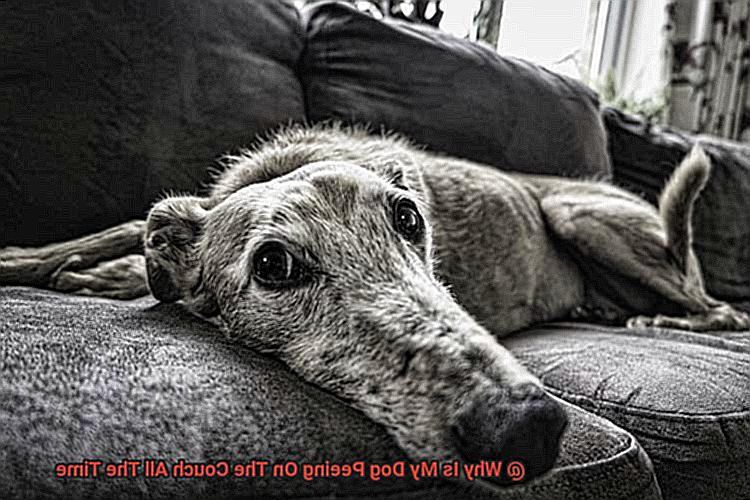Why Is My Dog Peeing On The Couch All The Time?
Do you come home to find your beloved couch soggy and stale from your dog’s urine? It’s a difficult and frustrating issue that many pet owners face. If your pup is peeing on the couch all the time, you may be wondering why they’re doing this and what can be done to stop it.
We’ll look at some of the common reasons dogs pee on furniture, plus how to solve the problem. That way, you can keep your couch—and house—clean and fresh.
So if you want to get to the bottom of why your pup is peeing on the couch all the time, read on!
The Most Common Causes of Dog Peeing on the Couch
Contents
- 1 The Most Common Causes of Dog Peeing on the Couch
- 2 Understanding Your Dog’s Behavior
- 3 Identifying Potential Triggers for Peeing on the Couch
- 4 Management and Prevention Strategies
- 5 Training Your Dog to Stop Peeing on the Couch
- 6 Cleaning Up After Accidents
- 7 Consult a Professional If Everything Else Fails
- 8 Conclusion
Many pet owners have had to cope with this issue, but don’t worry—there are some common reasons why dogs pee on the couch and steps you can take to address the behavior.
Medical conditions such as urinary tract infections, bladder stones, diabetes, or kidney disease can all be potential causes for a dog peeing on the couch. If your pup is having frequent accidents and you suspect a medical issue, it’s important to take them to the vet for an examination and diagnosis.
Stress and anxiety can also lead to a dog urinating on furniture.
This could be due to changes in their environment or routine, such as introducing a new pet or family member into the household, or even something as simple as loud noises outside.

If this is the case, it’s essential to identify what is causing your pup’s stress and anxiety and address it accordingly.
Marking is another common cause of your furry friend using your furniture as their bathroom. This behavior is more commonly seen in male dogs, but it can occur in female dogs too. To prevent marking from happening again in the future, it’s vital to take action now.
Lastly, submissive urination can make your pup pee on the couch if they feel threatened or intimidated by someone or something in their environment.
To help them become more comfortable in those situations, it’s important to identify any triggers that could be causing their submissive urination and work with them accordingly.
Understanding Your Dog’s Behavior
Are you dealing with a pup that keeps peeing on the couch? It’s hard to understand why your dog is doing this, but understanding its behavior is the key to solving the issue.

Start by observing your dog’s behavior and body language when it’s around the couch. Does it look anxious or nervous? Is it trying to mark its territory? This can help you figure out why your pup is peeing on the furniture.
Your dog may be peeing on the couch due to fear, anxiety, or boredom. It could also be marking its territory or seeking attention. Knowing why your dog is doing this will help you address the issue in a positive way.
If your pup is anxious or stressed, create a safe, secure space away from the couch for them to relax in. Make sure they get plenty of exercise and playtime so they have an outlet for their energy. If they are trying to grab attention, show them lots of love and compassion!
Understanding your dog’s behavior will help you determine why they are peeing on the couch and how to handle it in a positive way.
Identifying Potential Triggers for Peeing on the Couch
Anxiety is often the root cause of couch peeing. If your dog is feeling stressed due to changes in their routine, fear or anxiety, or even boredom, they may express their discomfort by urinating on the furniture.
Excitement can also lead to peeing on the couch. If your pup gets overly excited when you come home or when visitors arrive, they may mark their territory by peeing on the couch.

Territorial marking is another possible trigger; if your pup perceives the couch as their own space, they may urinate on it as a way of claiming it as theirs.
Identifying these potential triggers is essential for successfully addressing and preventing future incidents of couch peeing. Once you know what’s causing your pup to pee on the couch, you can take steps to stop it from happening again in the future.
Management and Prevention Strategies
There are some effective management and prevention strategies that can help.
Positive reinforcement is key: when your pup refrains from peeing on the couch, be sure to lavish them with praise and rewards. You can also train them to go to a designated area when they need to relieve themselves.
When you’re not home, it’s a good idea to cover the couch with a blanket or throw rug. If an accident does occur, clean it up immediately with an enzyme cleaner and make sure the area is completely dry afterwards.
Make sure your pup has access to plenty of water, and take them outside for frequent potty breaks. This will help reduce the chances of accidents inside your home.
It’s also important to rule out any underlying medical issues that may be causing this behavior. Providing chew toys and other activities will keep them occupied and mentally stimulated, while establishing clear rules about where they can and cannot go in your house and consistently enforcing those rules will help ensure their behavior is kept in check.
Training Your Dog to Stop Peeing on the Couch
You can help your dog learn better behaviors by taking a few simple steps.
Consistency and positive reinforcement are key when it comes to training your pup. Make sure that you reward them for good behavior and avoid punishing them, as they won’t understand why they’re being reprimanded.
Instead, focus on teaching them alternative behaviors, such as going outside or lying down on their bed.
If you find yourself in need of additional help, consider consulting a professional trainer who can provide an effective training plan tailored to your pup’s needs.
Cleaning Up After Accidents
When you have a pet, accidents happen, but cleaning up after them is critical to preventing future ones.Removing any lingering odors or stains can help keep your dog from returning to the same spot and creating more messes. Here are some tips on how to clean up after an accident.
First, use a cloth or paper towels to soak up as much urine as possible.Then, use a pet-safe cleaning solution and scrub the area thoroughly. Make sure that it’s completely dry before allowing your pup back in the area again to prevent any lingering odors or stains that could attract them back to the same spot.
In addition to cleaning up after accidents, there are other ways you can prevent future messes from happening.
Ensure your pup has access to plenty of water throughout the day, and take them outside regularly for potty breaks so they don’t feel the need to go inside on furniture or carpets.
Additionally, watch out for signs of anxiety or stress that may be causing them to have accidents in the house, and make sure they get enough exercise and playtime every day.
Consult a Professional If Everything Else Fails
Are you struggling to teach your bulldog not to pee on the couch? Don’t worry, there’s still hope! First, try some of the tips and tricks we’ve discussed in this review. But if that doesn’t work, it may be time to consult a professional.
A licensed trainer can help you create an effective plan to train your pup out of this behavior. They can also provide advice on how to set up your home in a way that discourages your dog from peeing on the furniture. Plus, they can offer suggestions on how to modify any existing habits or routines that may be contributing to the problem.
It’s important to remember that all dogs don’t respond the same way, so make sure you find a trainer who has experience working with bulldogs and other breeds like them.
Also, be sure to discuss any health problems that may be causing your dog’s behavior with your veterinarian before consulting a professional trainer.
Also Read: Why Is My French Bulldog Peeing So Much?
Conclusion
To wrap it up, training your pup not to pee on the couch is no easy feat. But with a bit of patience, knowledge, and these simple tips, you’ll be able to help them form better habits and keep your home clean and fresh.
Start by observing their behavior around the furniture and identifying any potential triggers. Then, ensure they get enough exercise and mental stimulation throughout the day so they don’t feel compelled to use the couch as their bathroom.
If all else fails, consider consulting a professional trainer who can create a specialized program for your pup’s needs.




